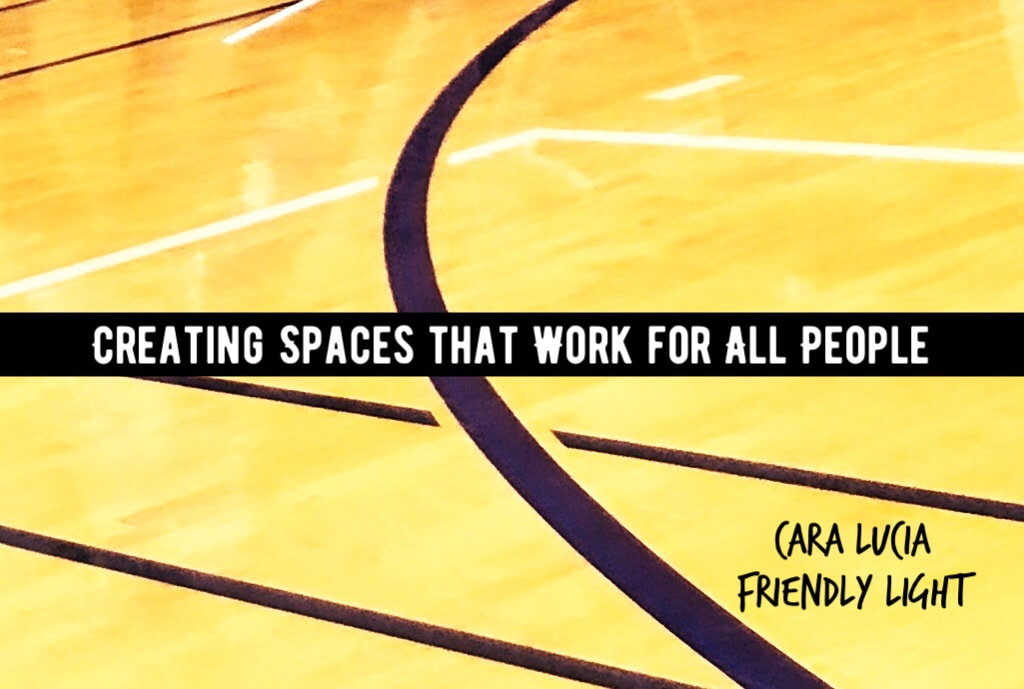Friendly Light
|
Universal Light Encompassing All Diversity and inclusion, which are the real grounds for creativity, must remain at the center of what we do. - Marco Bizzarri During the spring semester I teach a facility and venue management course. In the course we discuss a variety of content areas such as safety and risk management, finance, budgeting, sustainability, marketing, and event management to name a few. This week our focus is on universal design. Universal design is creating spaces that work for all people. Our dialogue begins with conversations around various design features in recreation and sport facilities. We also, spend time talking about the importance of planning events. Our initial conversation starts with the Americans with Disabilities Act of 1990. We discuss the importance of placing “person-first” in designing facilities and planning events. One example for design that we use is Gillette Stadium for designing facilities and one example of a sport event for individuals with disabilities is Murderball also known as Quad Rugby. Design Example: Gillette Stadium Accessible to All Sport Event Example: Muderball As we progress together on the topic of universal design I ask the students... What are strategies for creating spaces that work for all people? How do we make sure to have a broad view when designing facilities and planning events that are inclusive to all? To do this important work we have to consider various impact points for the variety of people our organization is responsible for from our employees, fans, and participants. We have to understand the various populations we serve and with respect to all identities (gender, race, ethnicity, religion, sexuality, age, ability...). We have to think about how we are going to be inclusive and ethical in regards to making decisions for the sport organization we manage and the staff we lead. Creating universal places is complex, the complexity encourages us to learn more about equity, diversity and inclusion and challenges us to critically think as sport management leaders who are managing and operating facilities. I do my best to create opportunities for my students to take advantage of learning opportunities on and off campus. I also do my best to role model the importance of learning by engaging in the opportunities with my students. On Sunday I had the opportunity to attend a keynote by Ryan Russell who was kicking off the Gender Equity Conference at Elon University. Ryan openly discussed the importance of being your authentic self. He shared about his journey exploring his sexuality and the messaging he received throughout his life about what a man is supposed to be. Ryan recently shared openly about his sexuality and that he identifies as bisexual. As we consider our employees, participants and fans that we serve, I ask us to think about the responsibility we have to one another to create spaces that work for all people. Ryan’s message emphasized the importance of lifting others up and seeing the humanness in one another. Here is a brief interview by CNN with Russell. Ryan Russell NFL Veteran and Free Agent "Out of love, admiration, and respect, I want the next team to sign me valuing me for what I do and knowing who I truly am." - Ryan Russell Another example for creating spaces that work for all people is through our bathroom and locker room services in recreation and sport facilities. Scott Turner Schofield actor, writer, and consultant created an educational program for gender diversity in changing rooms. Here is an excerpt from Scott’s Everybody Changes, Transgender Training page: Everybody Changes is a 12-part, video based eLearning course, designed to help you:
Everybody Changes, Transgender Training Above are a few examples for how we have an opportunity to create spaces that work for all people. I hope that the examples provided can assist us all in considering spaces that we work in, celebrate in, play in, or worship in that can be places that create spaces that work for all people. My professional work experience in recreation and sport is in the campus recreation industry. Our association NIRSA: Leaders in Collegiate Recreation values equity, diversity and inclusion as one of our six strategic values. I believe it is always important to share resources for anyone willing to learn more about how to create spaces that work for all people. Recently an amazing group of campus recreation colleagues came together to create the Equity, Diversity and Inclusion: A Resource Guide for Leaders in Collegiate Recreation. I encourage you to check it out if you find yourself in recreation, sport, athletic or professional sport environments. I mean let’s stretch here...no matter what type of organization you work for you should check it out. The guide provides information related to defining terms, explaining the complexity of identity as well as case study scenarios. With all this being shared, how will you be a universal light encompassing all?
0 Comments
Leave a Reply. |
|
Proudly powered by Weebly
